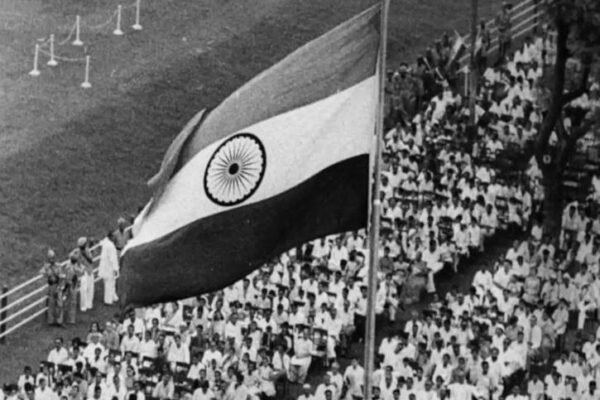Here’s a fascinating look into the history of Islamic law in India – and how it has shaped the country into what it is today.
Here’s a fascinating look into the history of Islamic law in India – and how it has shaped the country into what it is today.
Muslim personal law in India is a complex and multifaceted issue, influenced by the country’s history and the influence of Islam.
As the second-largest religion in India, it has been a subject of study and enforcement since its introduction. The concept of law has its roots in the old Teutonic root, meaning something fixed. As society evolved, the law evolved to meet the changing needs of the time.
Scholars trace the origin of law to the emergence of family and tribe, where commands from family and tribal chiefs constituted law for their members. As these social structures grew, the concept of the state emerged, regulating a larger number of families and tribes to establish a harmonious and integral state.
Law has been defined through various definitions, including being a discipline and profession concerned with customs, practices, and rules of conduct, regulating the government of the state, and a system of rules that everyone in a country or society must obey.
Historical Background of Muslim India
Islam entered to the hearts of people through trustful activities, particularly in trade routes and coastal areas. UNESCO recognizes this fact and has mentioned it in the description of Silk Roads Program, highlighting the commercial talent and sailing skills of Muslims.
It is believed that Malik Ibn Deenar has reached Malabar region of India during the initial stage of Propagation of Islam by Prophet Muhammed, there is debate among historians in the date of his advent or on his companionship.
The advent of Muhammad Ibn Qasim to Sind in the 8th century marked a turning point in the history of Indian Muslims. After the Delhi Sultanate, Muslims became dominant over a large area of the Indian subcontinent.
The Mughal dynasty seized control of Delhi in 1526 AC, but their rule weakened after the death of Aurangzeb in 1707. Despite the disintegration of the empire, Muslims continued to hold a small share of power as rulers of princely kingdoms or officials in the Mughal administrative system under the British.
The Evolution of Muslim Personal Law in India
Muslim personal law in India has been practiced since the arrival of Islam in the subcontinent.
Before British rule, both Hindu and Muslim rulers adopted a community-based system of law, focusing on religious rites, personal status, family relations, and succession. However, there is no historical evidence to prove the application of Muslim personal law by each ruler.
The first official administration of Muslim personal law in India was that of Muhammad bin Qasim, who established his rule in the 7th century. He applied Muslim personal law for Muslims and legally allowed the Buddhist and Hindu communities to follow their own laws.
Era of Delhi Sultanate and Mughal Empire
The ulama, who were directly involved in administration as advisers in court and jurists, continued this tradition during the Mughal period.
An important administrative position held by ulama under the Mughal system was the Qadi, who served as a judge, religious arbitrator, and registrar in civil matters such as marriage and land disputes. This network of religious functionaries and administrators had a direct link from the center to all parts of the emperor.
During the era of sultanate, and Mughal Empire the systematic application of Muslim personal law was observed, although some areas of Shari’a faced debates on applying the real Islamic penal code.
The conflict between Sharia and practical needs of administration was resolved through zavabits, which means state law. Southern India had a more secular approach to Muslim personal law, with Zamorins offering facilities and support for the administration of sharia among Muslims.
Policy of British Government
British rulers initially adopted a policy of noninterference in religious affairs of communities to avoid a break with the past and provide security in social conditions. They inherited a multi-tier system of civil and criminal courts, with Englishmen staffing them.
The British rulers appointed religious scholars to assist British judges in cases of Shari’a. The Muslim officer wrote fatwa on legal problems, and if it contradicted Shari’a, the case was sent to an appellate court. This led to the creation of ‘Anglo-Muhammadan Law’.
The policy of British India can be traced back to the Charter of George II granted in 1753 and Warren Hasting’s Judicial Plan of 1757.
The systemization of Muslim personal law in British India began during British rule, with the Act XI of 1864 abolishing the office of Qadi and bringing all levels of administration under their control. The Act was a significant hit on the administration of Shari’a in India, with influences from the Bengal Regulation VII of 1832 and the Third Law Commission of 1861.
These acts and judicial decisions showed contravention of the principles of Shari’a, leading to the modernization of Muslim personal law in India.
Muslim Personal Law in Independent India
The Indian legal system is based on equality before law, with religious communities having the freedom to follow their own personal laws in matters legislated by the Indian parliament.
Muslim personal law, along with other personal laws, has legal status as part of civil law in India, not as part of religious law. Amendment, reform, and interpretation are vested in the legislative body of the state, with courts having the power to ascertain, interpret, and apply the law.
There is no constitutional religious authority to control and regulate the functioning of Muslim personal law in India.
Personal law, one of the most important types of law, deals with family-related matters and domestic relations, including marriage, civil unions, domestic partnerships, adoption, surrogacy, child abuse, termination of relationships, and ancillary matters like divorce.
Muslim Personal Law in India is a collection of various acts legislated by governments and court verdicts. The Muslim Personal Law (Shariat) Application Act, 1937, is the foundation of the current form of Muslim family law in India.
Other major legislations include the Dissolution of Muslim Marriage Act, 1939, and The Muslim Women (Protection on Rights on Divorce) Act, 1986.
The central Act of 1937 was a turning point in the history of Muslim family law in India, invalidating many customs and forcing Muslims to merge with the broad Islamic community.
Substantive legislation, such as the Dissolution of Marriage Act 1939, the Protection on Rights on Divorce Act 1986, has also contributed to the codification of Muslim family law in India.
References
- Mahmood, Tahir & Mahmood, Saif, Muslim Law in India and Abroad, New Delhi, Universal Law Publishing Co. Pvt. Ltd, 2012
- Oudah, Abdul Qadir (S. Zakir Aihaz, translator), Criminal Law of Islam, Delhi, International Islamic Publishers
- K, Pradeep Kumar, Political Science, Malappuram, University of Calicut, 2014
- Ahmad, Zafar, Islam and Muslims in South Asia, New Delhi, Authors Press
- Menon, A Sreedharan, A Survey of Kerala History, Kottayam, DC Books, 2008
- Parson, Harlan O, Islamic Reform and Revival in Nineteenth-century India, New Delhi, Yoda Press, 2005
- Shaikh, Justice Shahzad, Political History of Muslim Law in Indo-Pak Sub-continent, Larkana, Mission Un to Light International, 2012
- Rizvi, Sayyid Athar Abbas, Religious and Intellectual History of the Muslims in Akbar’s Reign, New Delhi, Munshiram Manoharlal Publishers Pvt. Ltd, 1975
- Maqdoom, Shaik Zainuddin, Thuhfathul Mujahideen fi baili akbaril Burthugaliyyeen, Calicut, Thirurangdi Book Stall
- Chandra, Satish, Essays on Medieval Indian History, New Delhi, Oxford University Press, 2003
- Emon, Anver M, Conceiving Islamic Law in a Pluralist Society: History, Politics and Multicultural Jurisprudence, Singapore Journal of Legal Studies, 2006
- Rashid, Sayyid Khalid, Islamization of Muhammadan Law in India, The American Journal of Islamic Social Sciences, Vol 5, 1988
- Mahmood, Tahir, Statue Law Relating to Muslims in India, Institute of Objective Studies, New Delhi, 1995
- Malhotra, Anil & Malhotra, Ranjit, Family Law and Religion – The Indian Experience





